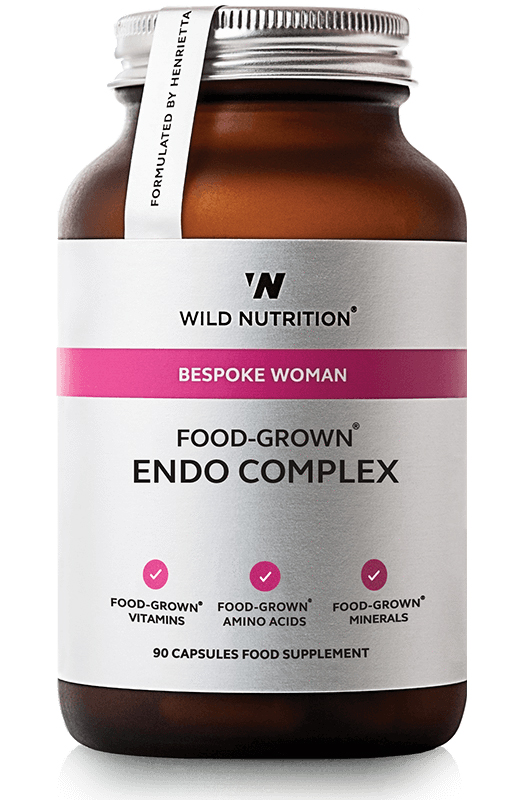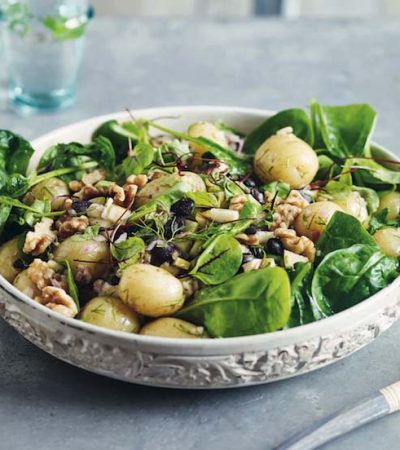Endometriosis is a complex disorder of the female reproductive tract whereby cells, similar to those found in the lining of the womb, are found elsewhere in the body. During the female monthly cycle, the fluctuation in hormones stimulates these cells to grow, then break down and bleed as they would in the lining of the womb leading to inflammation, pain, and the formation of scar tissue. It has been estimated that approximately 10-15% of all premenopausal women have endometriosis but despite being one of the most common gynaecological diseases, how endometriosis occurs remains controversial. One of the most supported theories is that endometriosis is fuelled by a dominance of the hormone oestrogen, however growing research suggests that there is an auto-immune aspect to the condition.
What are common symptoms of endometriosis?
- Painful, heavy or irregular periods
- Pain during or after sex
- Painful bowel movements
- Pain on ovulation
- Fatigue and low mood
Endometriosis symptoms can vary in intensity for each woman and the ‘severity’ of the endometriosis does not necessarily correspond to the amount of pain experienced. Some women may not experience any symptoms at all or mild symptoms that appear to be ‘normal’ menstrual pain.
Research continues to prove that nutrition is a fundamental aspect of the management of endometriosis. Managing endometriosis through diet and lifestyle supports the whole body, in particular, the immune and endocrine systems. By doing so, inflammation and hormonal imbalance, as a result of endometriosis, can be supported and brought back into equilibrium. Studies have demonstrated that nutritional therapy (diet and supplements) was more effective at obtaining relief of pain and improving quality of life, than medical hormonal treatment post-surgery.
The link with your Immune system and Nutrient Deficiencies
Women with endometriosis do not have strong immune systems. The natural ‘killer’ cells of the immune system do not work as effectively as they should; endometrial patches that should be regarded as ‘invaders’ and destroyed by chemicals released by the immune system, are not. Instead, they are left intact to roam and migrate to other parts of the body, further evoking inflammation. As we know the immune system of a woman with endometriosis is suggested to be weaker than the norm and therefore it is vitally important to support in order to control this process.
The hormone system and the immune system require many of the same nutrients, such as the B Vitamin family (especially B6) vitamin C, iron, magnesium, zinc, selenium, methionine and vitamins A and E. If any of these are in short supply it can compromise both your immune function and your reproductive system.
Sugar and its food products can interfere with the way the white blood cells of your immune system clear up the debris as well as the growth and variety of beneficial bacteria that can proliferate in the gut (a central aspect of your immune tolerance). Reducing your intake of these foods can have a direct beneficial impact on your immune system.
Stress can dampen down the immune system’s ability to function optimally. Under stress, our body releases a number of hormones including cortisol. When this is released on a continuous basis (when you are under daily amounts of stress such as traffic jams or work strains this can inhibit the production of progesterone and the immune systems defence cells can be inhibited.
More recently, research that has categorized endometriosis as an auto-immune condition has documented an improved response in those following a with a gluten-free diet; 75% of participants found a significant decrease in symptoms when following a gluten-free diet over 12 months.
What can I do to help?
Eat Colour: Research shows women who ate green vegetables 13 times or more per week (roughly twice a day) were 70% less likely to have endometriosis. A study published earlier this year concluded that Carotenoid-rich foods (especially citrus fruit) also positively affected symptoms of endometriosis. Use smoothies, juicing or soups to deeply to nourish.
Befriend your gut: Beneficial gut bacteria can reduce the production of beta-glucuronidase, an enzyme that remakes oestrogen in the gut and can contribute to its dominance. Incorporate natural, organic yoghurt into your daily diet either on its own or use it to make dressings and sauces. Fermented foods such as sauerkraut or Kefir are excellent sources of beneficial bacteria too or take a probiotic supplement (min. 10 billion CFU)
Fats are essential: essential fats found in nuts, seeds and oily fish can reduce inflammation associated with endometriosis. Use of essential fatty acids is blocked by processed oils and margarine, as well as white flour, sugar, excessive animal and monounsaturated fats, alcohol, poor nutrition and stress. Keeping these to a minimum is vital to reduce inflammation.
Be conscious of what you put in and on your body: Bleached tampons and sanitary towels are a controversial area in the endometriosis debate. Tampons use bleached paper products that contain dioxins, proven to have an adverse effect on the hormonal system. Chemicals, such as parabens and phthalates, found in your toiletries and cosmetics have also been linked with the development of endometriosis. You can find more information from the Women’s Environmental Network.
Can I take supplements for endometriosis?
Wild Nutrition’s Food-Grown Endo Complex is a unique blend of nutrients and botanicals to support women through the natural cycle of menstruation. The complex condition of endometriosis affects many systems in the body including the immune system, nervous system and digestive system.

words by Henrietta Norton, founder of Wild Nutrition
MORE ARTICLES YOU MIGHT LOVE…














